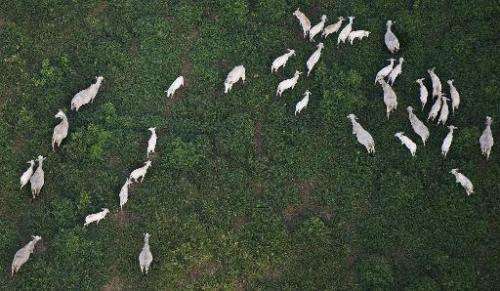Half of world's forest species at risk

Half of the world's forest species are at risk from climate change and farming, the United Nations warned on Tuesday, as it called for "urgent action" to manage them better.
In its first global study of forest genetic resources, the UN's Food and Agricultural Organisation (FAO) said woodland was shrinking fastest in Brazil, Indonesia and Nigeria.
"Forests provide food, goods and services, which are essential to the survival and well-being of all humanity," the FAO's forestry director Eduardo Rojas-Briales said in a statement.
"These benefits all rely on safeguarding the rich store of the world's forest genetic diversity, which is increasingly at risk."
The report found that around half of the 8,000 reported species and subspecies were perceived as being endangered.
The ten countries that lost the most forest area between 1990 and 2010 were Brazil, Indonesia, Nigeria, Tanzania, Zimbabwe, Democratic Republic of Congo, Myanmar, Bolivia, Venezuela and Australia, it said.
FAO said biodiversity boosted both the productivity and nutritional value of forest products like leafy vegetables, honey, fruits, seeds, nuts, roots, tubers and mushrooms.
Genetic diversity also protects forests from pests and ensures they can "adapt to changing environmental conditions, including those stemming from climate change", the FAO said.
The FAO called for more efforts to raise awareness of the importance of biodiversity and to combat invasive species, as well as the development of national seed programmes to ensure the availability of genetically-appropriate tree seeds.
© 2014 AFP



















